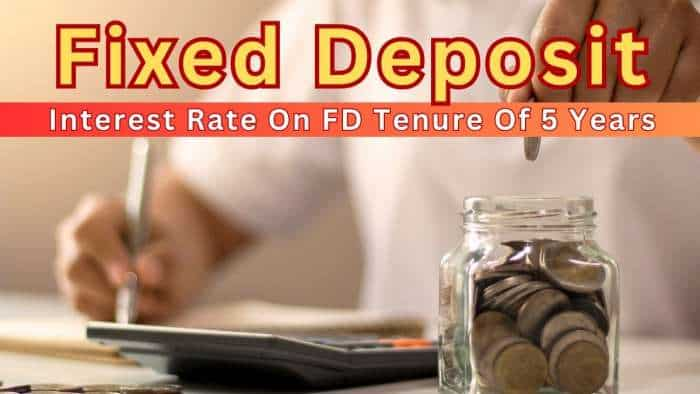Tenant's transition to becoming landlord: Expert explains benefits and risks of homeownership
Atul Monga, CEO and co-founder of BASIC Home Loan, emphasizes that "owning a home is a significant financial decision that requires careful consideration of both the benefits and risks." He points out that changes in the rules regarding real estate could affect how things work.
)
The journey from being a tenant to becoming a landlord by owning one's own home is a significant milestone in the lives of most individuals. This transition marks not only a shift in living arrangements but also a potential shift in financial circumstances. While the concept of homeownership brings with it a sense of stability and pride, it's crucial to understand the associated benefits and risks, especially when considering the evolving dynamics of real estate clauses.
Atul Monga, CEO and co-founder of BASIC Home Loan, emphasizes that "owning a home is a significant financial decision that requires careful consideration of both the benefits and risks." He points out that changes in the rules regarding real estate could affect how things work.
Benefits of homeownership
Atul Monga says that owning a home brings forth a multitude of benefits, some of which are —
Equity building: As a homeowner, monthly EMIs will contribute to building equity in the property. Over time, this equity can serve as a valuable asset that can be leveraged for various financial needs.
Stability and security: Homeownership provides stability by offering a consistent living environment without the uncertainties of rental agreements and potential rent hikes.
Personalization: Homeowners have the freedom to personalize and modify their living spaces according to their preferences, contributing to a stronger sense of belonging.
Long-term investment: Real estate historically appreciates over time. Owning a property can serve as a long-term investment that may yield substantial returns.
Tax benefits: Homeowners often benefit from tax deductions on easy monthly installments and property taxes, leading to potential financial savings.
Potential risks of homeownership
The CEO and co-founder of BASIC Home Loan adds that homeownership comes with its own set of demerits like —
Financial responsibility: Homeownership entails various financial responsibilities beyond the mortgage, including maintenance, repairs, property taxes, and in some cases, homeowners' association fees.
Market fluctuations: The real estate market is subject to fluctuations. Property values may not always be appreciated, potentially leading to financial loss if the property is sold during a downturn.
Liquidity constraints: Selling a property might take time, limiting the ability to access funds quickly in times of need.
Maintenance costs: Unlike renting where landlords handle repairs, homeowners are responsible for maintenance expenses, which can sometimes be substantial.
Interest rates and loan terms: Interest rates and loan terms play a significant role in determining the overall cost of homeownership. Unfavourable rates or terms could increase financial burdens.
Atul points out that the transition from tenant to landlord through homeownership is undoubtedly a transformative journey. And he sums up saying that although the benefits of owning a home are numerous, but one must approach the transition step with a clear understanding of the potential risks involved.
Get Latest Business News, Stock Market Updates and Videos; Check your tax outgo through Income Tax Calculator and save money through our Personal Finance coverage. Check Business Breaking News Live on Zee Business Twitter and Facebook. Subscribe on YouTube.
RECOMMENDED STORIES

SIP Calculation at 12% Annualised Return: Rs 10,000 monthly SIP for 20 years, Rs 15,000 for 15 or Rs 20,000 for 10, which do you think works best?

FD Rates for Rs 10 lakh investment: Compare SBI, PNB, HDFC, ICICI, and Post Office 5-year fixed deposit returns

LIC Saral Pension Plan: How much should you invest one time to get Rs 64,000 annual pension for life?

SIP Calculation at 12% Annualised Return: Rs 1,000 monthly SIP for 20 years, Rs 4,000 for 5 years or Rs 10,000 for 2 years, which do you think works best?

UPS vs NPS vs OPS: Last-drawn basic salary Rs 90,000 and pensionable service 27 years? What can be your monthly pension in each scheme?

Monthly Pension Calculations: Is your basic pension Rs 26,000, Rs 38,000, or Rs 47,000? Know what can be your total pension as per latest DR rates
03:16 PM IST











 How Your Credit Score Affects Loan Approval: Insights for first-time borrowers
How Your Credit Score Affects Loan Approval: Insights for first-time borrowers Bank of Maharashtra cuts retail loan interest rate by 25 bps
Bank of Maharashtra cuts retail loan interest rate by 25 bps  Reduce Home Loan EMI vs Reduce Tenure: Which option can help you save Rs 30 lakh & 5 years on Rs 65 lakh loan
Reduce Home Loan EMI vs Reduce Tenure: Which option can help you save Rs 30 lakh & 5 years on Rs 65 lakh loan Tips for managing your home loan
Tips for managing your home loan Attention SBI Customers: EMIs of home loan, personal loan go up as PSU bank hikes lending rate
Attention SBI Customers: EMIs of home loan, personal loan go up as PSU bank hikes lending rate